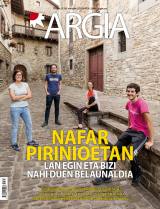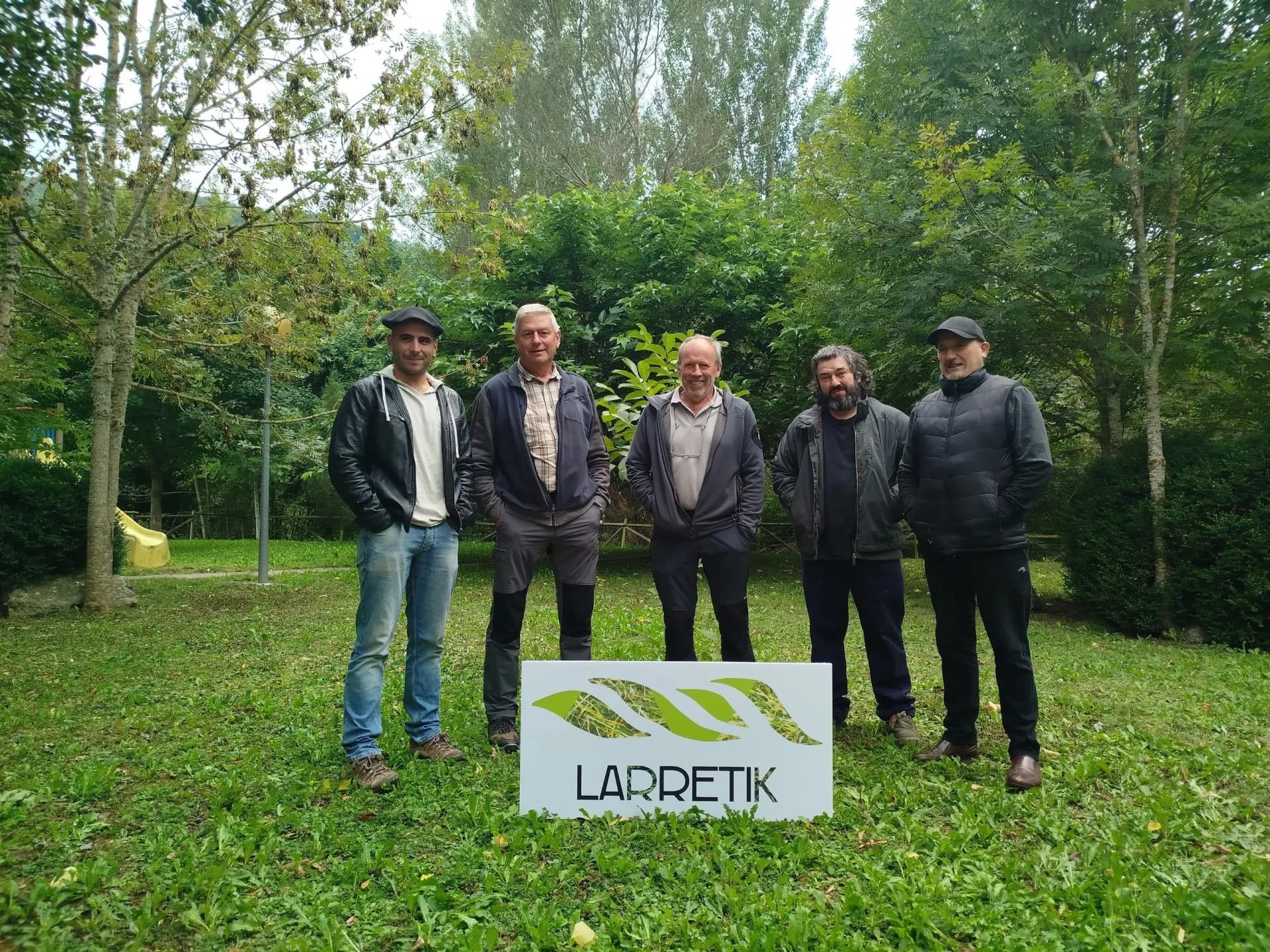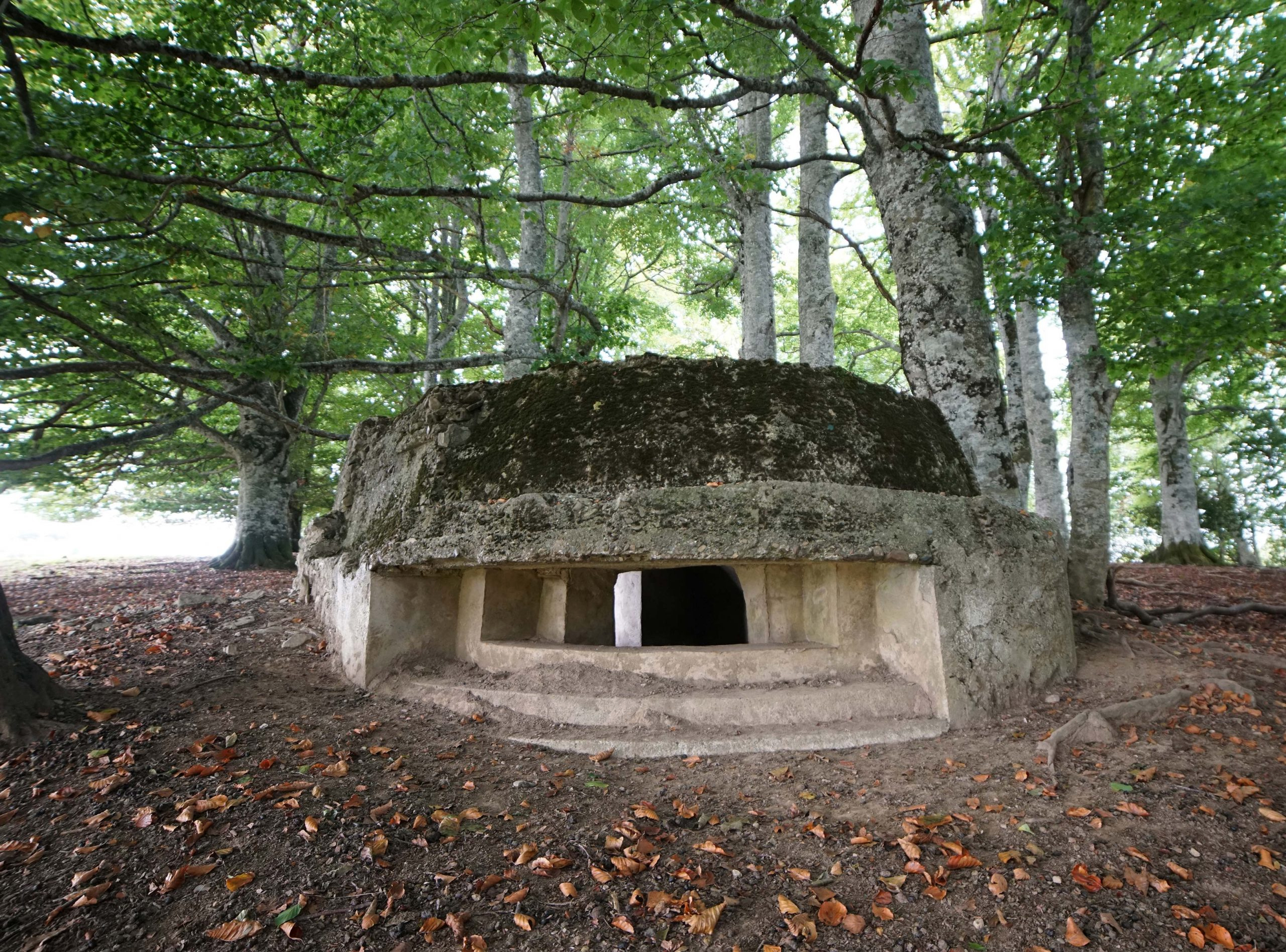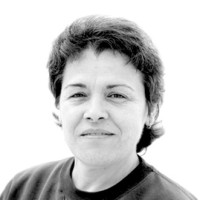A generation that will resurrect the Pyrenees Navarros
- The spectre of depopulation, institutional exclusion and an ageing population has long been experienced by the inhabitants of the Pyrenees of Navarra, even more so in the eastern valleys: Aezkoa, Salazar and Roncal. However, there are young people who have managed to carry out their life and work projects. We've been with some of them.

We have met with nine neighbours of the Pyrenees, of the three valleys. Silvia Erlanz, Koldo Hualde, Javier Laspidea and Pilar Glaria are from Roncal; Nerea Recalde, Nekane Arroyo and Gonzalo Celay de Salazar, and Joseba Martínez and Miguel Agorreta de Erroibar. To the question of whether the negative image of the region coincides with reality, everyone answered unanimously: “No.” Anyone who wants to live in the Pyrenees can do so, but to do so it is essential to adapt to the possibilities offered by the environment. They are asking for an effort and they have made that commitment, convinced that the quality of life deserves an effort.
Today, everyone works in the village, but most studied in the city to later apply the training obtained. Koldo Hualde completed the upper cycle of woodworking, as the family carpentry was waiting for him in the village, and Javier Laspidea studied forestry exploitation, as he had the opportunity to work in this valley. In the end, they both took a different path: the first works in the bakery of Roncal and the second in the family cheese shop; in any case, professions that can follow in the village. Like Hualde and Laspidea, the professionalization of young people in their home trades ensures a change in the Pyrenean valleys.
There are also those who have chosen other ways of working in the people. At Zarauztarra Nekane Arroyo does not like land related trades, learned hairdressing and opened a business in the village. Overcome the initial fears and doubts, the result has been positive and business is the only source of income today. The shortage of inhabitants in the Valley is a minimum of competition, which contributes to this.
Silvia Erlanz and Gonzalo Celay studied at the University of Deusto, and have managed to adapt their knowledge to the university. Erlanz has carried out the Environmental Biology course and created a company linked to the natural environment. It offers various services: forestry projects, gardens, environmental education... Celay studied Physical Education and Sports Sciences and created an active ageing project in the Salazar Valley and in the Admiral of Navascués, together with a friend. Physical exercise workshops have been offered in the Ezkaroz Nursing Home, the Health Centre and the Retirement Facility for two years.
Quality of life as an objective
“Here life is linked to nature, communication between neighbors is amazing, we are part of the system. And let's eat the tomatoes from the orchard and the chicken's eggs, that's reckless," says Erlanz. This is a newborn child who is happy because his child is going to be born there.
The case of Nerea Recalde is significant: Born in Lumbier, he currently resides in Ezcároz. She's gone to the town since she's young, because she has family members, and her partner is from the same valley. He studied nursing in Pamplona, was proposed to work in the health center of Ezcároz and accepted it without thinking about it. Two years have passed since then and he has no doubt: “If in the future I can stay here, I will stay. Closeness to patients and trust among citizens are unique”. But you have often heard the question: Loneliness doesn't choke you? Or: What do you do without film or without shopping malls? “We don’t have that here, but we have mountains, forests, rivers, snow.” In Ezkaroz, for example, they have dance, sports, sewing, Basque and painting courses throughout the week.
Primary sector: barriers and alternatives
The return of the prepared young people to the villages and the application of the studies in them is very positive for the area; however, the economic base of the Pyrenees is the primary sector and is in a critical situation: lack of continuity, the link of the young with the land is weak. Miguel Agorreta is from Auzperi (Valle de Erro) and livestock. The current situation worries him, because he sees that his elderly may be the last farmers and farmers. Source of the problem, “administrative barriers”. The European Union determines the competences and subsidies of animals, but each state interprets and decides how to implement them and, according to Agorreta, the management models of the Spanish and French states have nothing to do with: While French legislation favours small farmers and farmers, Spanish legislation encourages agro-industry. “Spain has applied the legislation on the gigantic and similar cowboys of Burgos, and that does not agree with us, because there is not much exploitation here. How will young people get into these red tape?”
Small farmers only have to create alternatives: direct selling, betting on the ecological, differentiated own production... Agorreta has opted for live sales, as it makes more profit if intermediaries are excluded, and it seems to him that it is nice that the purchaser consumes his products directly, approaches its disposal and can see how the animals are. In order to do so, however, it has had to make large investments and fulfil the requirements that are required of the large industry.
Erlanz, although younger, has also suffered from the legislation of the Spanish State. Its aim is to cultivate and sell soaps, jams and honey, but it has not yet achieved the permits and certificates that are required of it. He criticizes the fact that the process is very long and expensive and that in the end the consumer has to pay a lot more: “In a valley where all grasses are certified as organic, they prevent us from selling and consuming indigenous products.” Both have mentioned Iparralde as a model, “since local farmers can condition a room at home and start working.”
.jpg)
Tourism as a tool to strengthen local socio-economy
Tourism is another fundamental pillar of the Pyrenees’ economy. There are many people who come every year to visit Ochagavía and Isaba, to know the Irati jungle, to go hiking on the mountain or to ski in Belagua and Abodin. It is a tourism linked to nature, history and the rural environment, quiet, consumed in the towns and then returned.
Pilar Giera studied the upper cycle of tourism technique and has opened a rural eco-management house. Joseba Martínez studied cooking and is a cook of the campsite Auzperri in his home town. “I buy meat from the farmer and it’s a way to help him.”
“We are the first to believe that we can live here”
Respondents are of the opinion that an excessively negative outlook has been opened outside the Pyrenees. In Celay's words, older people have spread a pessimistic image: “They know the people, their experience and their surroundings, and they talk about the primary sector, a sector that has gone down, so they see everything very dark. We, on the other hand, have had the opportunity to leave and have seen that things are difficult abroad, that each place has its weaknesses, as here anywhere.” Before the crisis, Pamplona was a space full of opportunities for the young people of the villages, where they learned and where they found work. Now Celay sees the town and the city in the same way: “You’ve seen the wolf’s teeth and you’ve begun to reflect on the current model of life and consumption, you’ve seen something change. I am clear: here you can live and work, but we have to believe, if not, we have done it.” To do this, it has considered basic services essential in all the valleys: physician, school, day care, shops, bars. “Improving is improving the quality of these services. It’s not that more people come, but that those of us who are here are OK and don’t feel that we are less than those of the city.”
Open doors
In order to raise awareness, raise awareness and inspire the citizens of the different valleys, three groups have been created: We are alive, in the Pyrenees, in Lan and Bizi, and in Txantxala. Fairs, gatherings, conferences, etc. are organised, and in May a collection of signatures was carried out to the Parliament of Navarra (2,152 in total) to ask that the problem of depopulation be put at the centre of the agenda and that the laws adopted take account of its impact on the Pyrenees.
Gonzalo Celay works in the Bizirik Gaude group and says it is a good tool for activation, although it is noticed that young people are missing: “They are demobilized and do not value the things that other young people organize until we stop doing. It is a widespread trend in society, but in small peoples the consequences are increasing and the responsibility of those of us who are committed is greater.” However, in the face of frustration and pessimism, illusion is the key.
The Pyrenees Bureau has also been set up to strengthen the unity of the valleys and mediate between the associations and the administration. It consists of fifteen representatives of the peoples and open working groups have been set up so that the citizens can make concrete proposals and make them available to Parliament or the Government. Housing is one of the main issues being worked on, as most of the young people who want to live in the Pyrenees have trouble getting involved. In the villages there are many empty houses and for sale, but they are too big and expensive, they are not for rent and if they are bought, you have to make investments to adapt them, because they are old. Several municipalities are driving social renting, but the process is slow. At the Pyrenees Bureau, Martinez, he also says that the problem is serious and that things have to be changed. A speech on the Pyrenees has been made, with the approval of all the groups, and an analysis of the socio-economic situation in the area has been presented to propose solutions. However, Martínez has not undergone any changes in Navarre since the entry into force of the Basque Government to four of its members. Yes, he says that they have demonstrated their readiness to listen and take steps, and that they have more open doors than ever before: “As for possibilities, we are at the best time since I live.”
“Food sovereignty is fundamental to the decline of peoples”
.jpg)
The cook Joseba Martínez is concerned about the eating and buying habits that are taking place today. Food sovereignty has long been studied, the consumption of organic food produced by small farmers and local farmers, which, in addition to benefiting health, serve to keep peoples alive, to boost the local economy, culture and life and to preserve nature. Together with other young Navarros, it has set up the food sovereignty group, as part of the Gazteria aiki meetings. They bring small rural producers together with consumers in the city: they bring buyers together lists of products that they offer farmers and farmers, and they offer them the possibility to buy these foods directly. “Through this network we provide the consumer of the city with a tool to eat and buy in a dignified way and at the same time help the farmer. It is a question of justice, we must give it the value that things have. When I buy Miguel from the neighbor, I help him, but also his family and environment, and I maintain a sector; in short, I make a country.”
“Ten years ago, in the gaztetxe of the people we did not think of recycling waste, it is now unthinkable not to recycle it. The same thing will happen with food sovereignty, because it is not acceptable that this philosophy should not be incorporated into popular movements. We have to face the challenge of caring for the land, caring for ourselves and creating a socio-economy.”
It refers to the victories of the North farmers: “As in the Spanish State, in the French State too, small producers face the threat of agro-industry, but they have more strength: the unions are powerful, they have the Chamber of Agriculture, they join many and their word is important.” As an example, the slaughterhouses: “Small slaughterhouses have been opened and direct selling criteria have been combined, which has served to consolidate youth and the people and to create a land-linked socio-economy.” The neighbour has followed the process closely and has discovered that this system that is being created, despite so many problems and contradictions, is turning the situation upside down, young people are getting on the wheel, and that the farmers’ struggle has been the key, because thanks to this struggle administrative changes have been made. “That’s the model to follow and that’s what we’re going to push forward.”
The Pyrenean valleys of Aezkoa, Salazar and Roncal would be a demographic desert of 3.8 square kilometres of population density (with an average of 68.1 inhabitants per square kilometre). In addition, 6.3% of this population would be older and the eastern Pyrenees would be an... [+]
Morning news. The ski resort at the top of Irati, managed by the Public College of Zuberoa, has decided to proceed with the final sawing, as they will be in snow again this year. I remember that about twenty years ago, in a special issue of Pyrénées Magazine, they announced... [+]
If you look at the Pyrenees on a map, they're like a line. Moreover, if someone tells us to paint the Pyrenean mountain range, we would surely plant the mountains together, although it looks something like what in English they call skyline. This image of the saw allows us to... [+]











_Glaciar.png)











